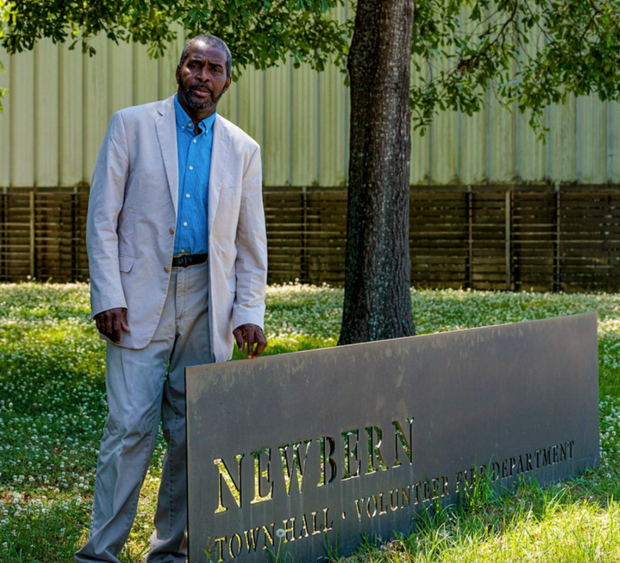In the small town of Newbern, Alabama, with a population of just 133 people, history was written this week as Patrick Braxton, the town’s first Black mayor, secured a sweeping victory in the mayoral election. This key event marked a significant turn in a community that had wrestled with allegations of racial discrimination and undemocratic practices in leadership appointments for decades.
Braxton’s journey to mayorship began in 2020 when he ran unopposed for the position, driven by concerns about the largely white town council’s responsiveness to the needs of Newbern’s majority Black community. He won the office without a traditional election, prompting significant controversy. Braxton claimed that on his initial attempt to take office, the doors of town hall were metaphorically and literally shut on him; locks were changed, and he was denied access to the town’s financial accounts, reflecting a palpable pushback from some segments of the community.
His struggle to assume office was not just an overnight ordeal but spanned several years and included legal battles, allegations of secret meetings by outgoing officials who were accused of reappointing themselves in a clandestine maneuver to maintain control. Despite these obstacles, Braxton emerged as a symbol of resilience and change, appropriating legal avenues to challenge and reconfigure the governance structure in Newbern. The lawsuit he filed claimed that the town had engaged in a sort of “hand-me-down governance,” where positions were filled without a democratic vote, a practice that lasted six decades and contributed to a monopolistic control of power by a few.
The climax of this legal battle resulted in a settlement agreement and the promise that a mayoral election would be held, which came to fruition in the latest electoral event where Braxton faced his opponent, Laird Cole, a white auctioneer and realtor. With the town’s residents coming out to vote in this landmark election, the results were clear: Braxton garnered 66 votes to Cole’s 26, a testament to the trust and desire for transparency and inclusion that the citizens of Newbern yearned for.
Speaking about his election, Braxton noted the significant participation of the townspeople, indicating a collective desire for clarity and progress in local governance. “The people came out and spoke and voted. Now, there ain’t no doubt what they want for this town,” Braxton shared in a post-election interview. This sentiment was echoed by Madison Hollon, program manager of political campaigns for the SPLC Action Fund, who underscored that Mayor Braxton’s reelection represented a pivotal moment for Newbern. It was seen not only as an act of restoring democratic governance but also as reaffirming each resident’s voice in the functioning of their local government.
The reelection brings more than just a second term for Braxton; it represents the breaking of a decades-long cycle of governance that often left part of the community feeling unrepresented and unheard. It also puts a focus on the essential principles of democracy—fair representation, accountability, and the power of a community’s vote.
Newbern itself is a modest town, marked by basic landmarks like a library, a town hall, a mercantile, and a flashing caution light—all embodying the small-town charm about 40 miles west of Selma. However, what stood out in this election was not just the reaffirmation of democratic values but the clear message sent by the citizens of Newbern in choosing unity, inclusion, and progress over division and exclusion.
As Braxton prepares for his continued role as mayor, the victory is embellished with personal significance and broader implications for governance in Newbern. “It feels good the second time,” he said, reflecting on his journey and the electoral victory that underscored his position.
Looking forward, Newbern stands at a crossroad, with an opportunity to redefine its identity and path toward inclusive and responsive governance. The recent election not only rectified a historical oversight but also paved the way for future leaders, ensuring that the civic machinery of Newbern aligns more closely with the values of its diverse populace. This is a story not just of overcoming racial and political barriers but of a community’s relentless pursuit of justice and equality. The re-election of Patrick Braxton is a chapter in that larger narrative, promising a new era for the tiny town of Newbern.









